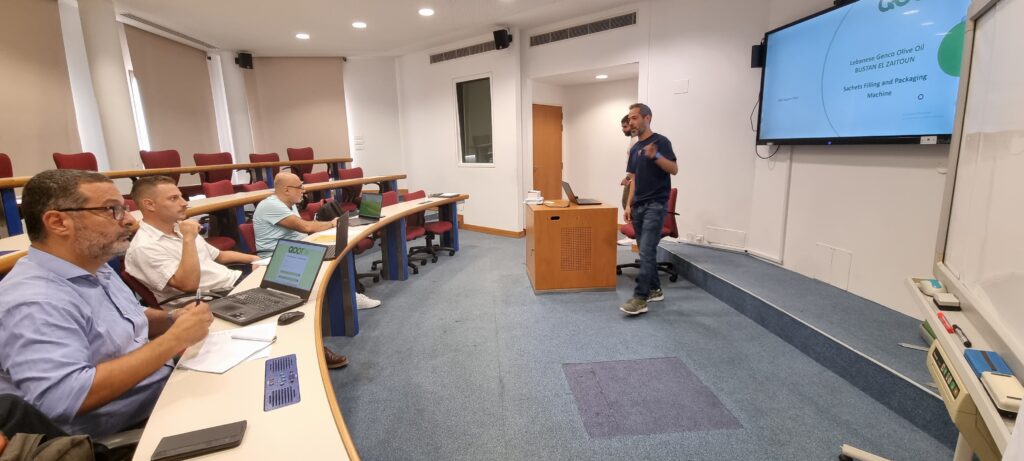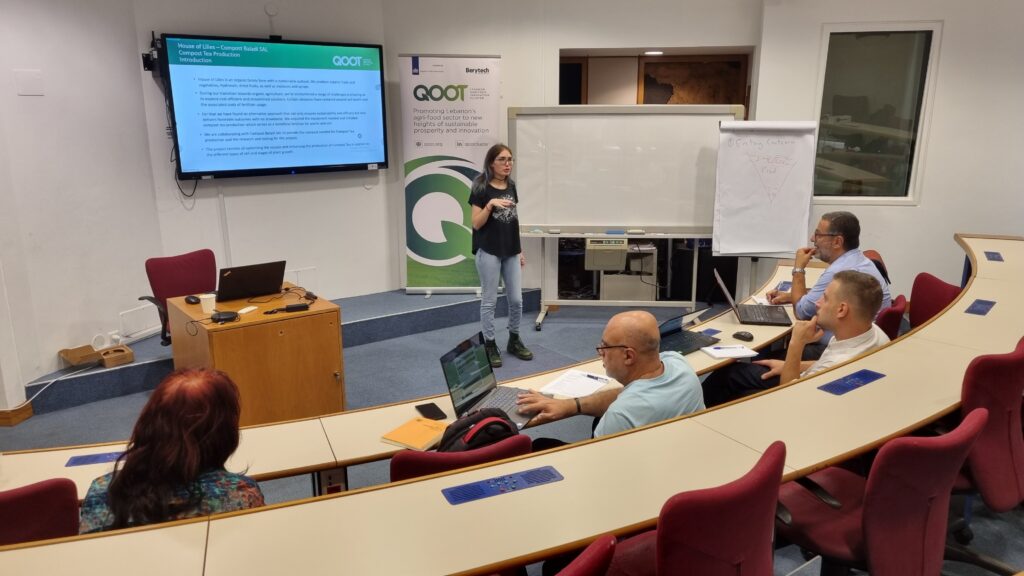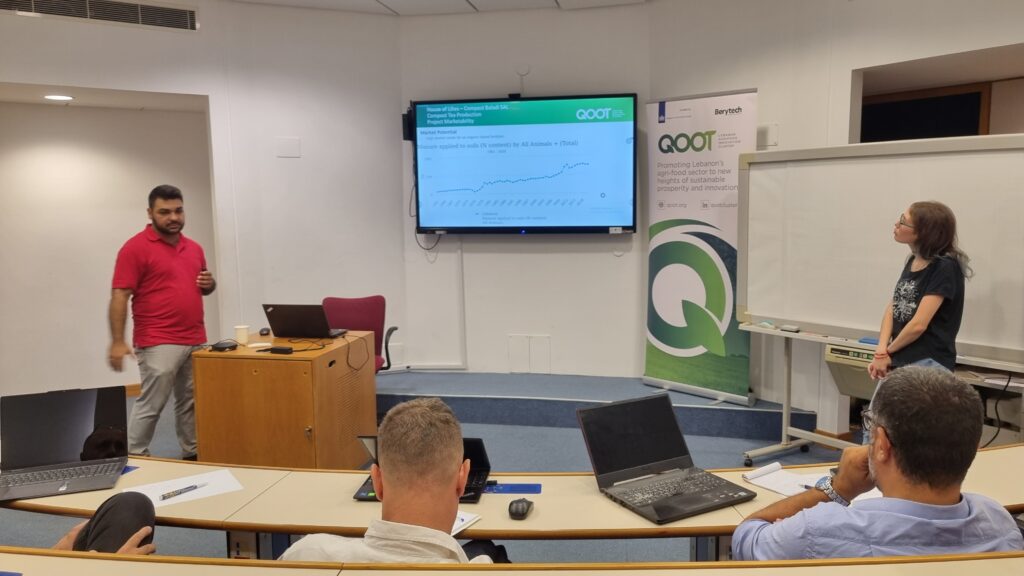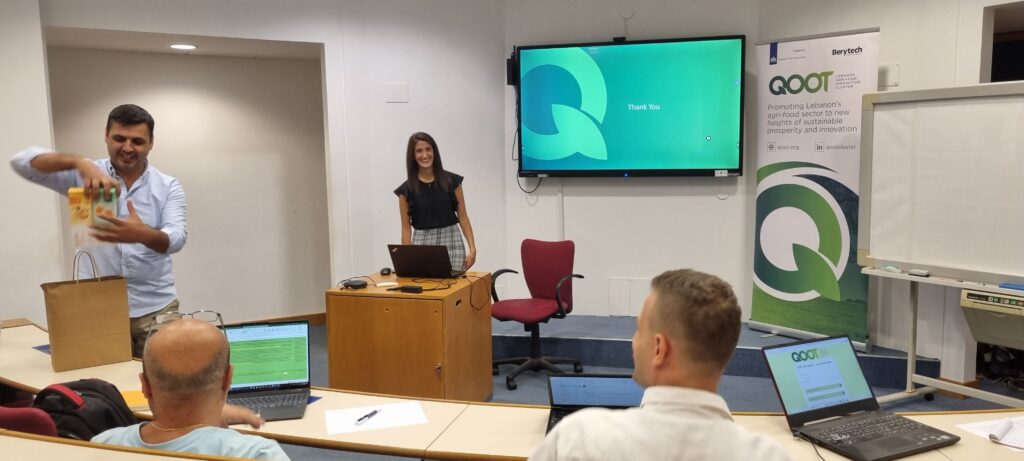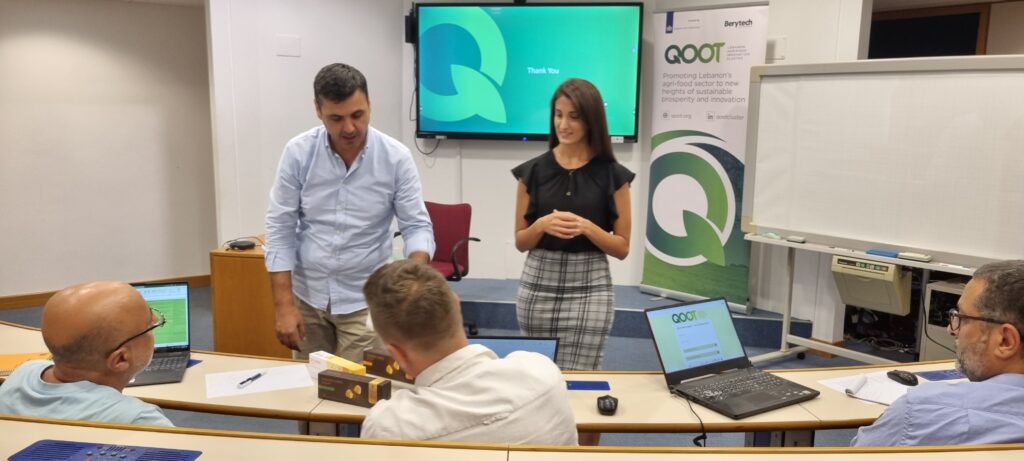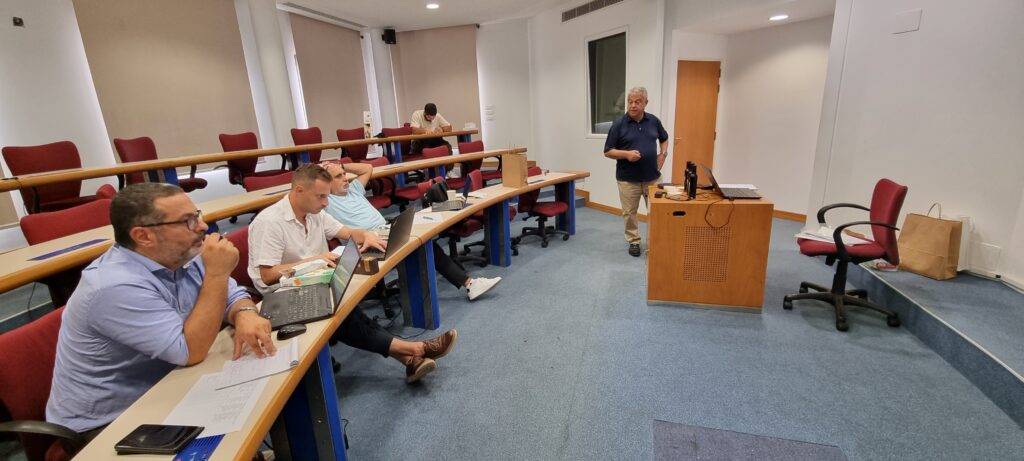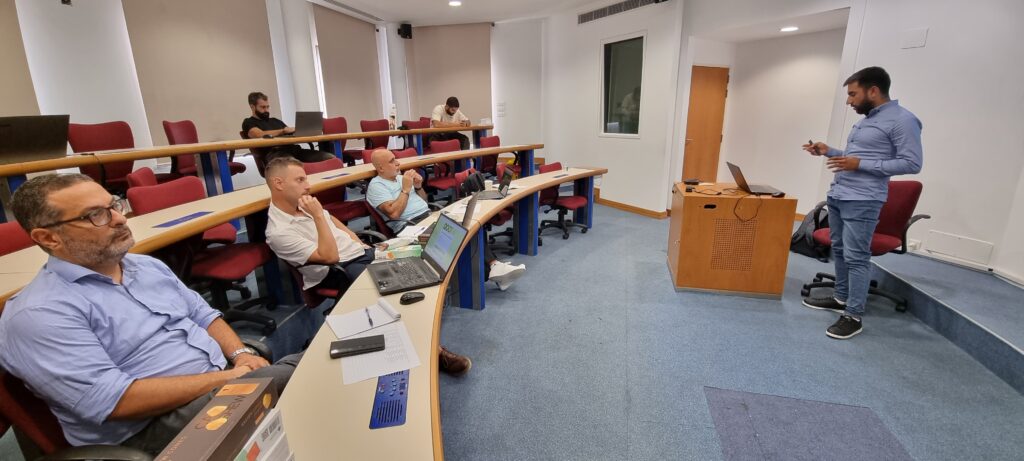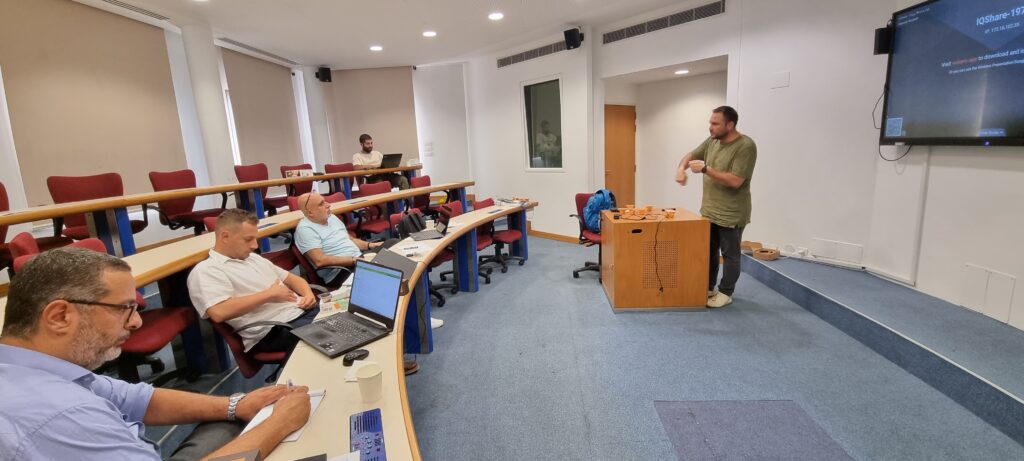In a bid to boost innovation, collaboration, and competitiveness within Lebanon’s agri-food sector, the QOOT Cluster recently launched its Research and Development (R&D) Support Initiative. This forward-thinking program aims to support winning projects with R&D costs, offering financial and technical facilitations to its members in various critical areas of development. The initiative not only strengthens the cluster’s members but also facilitates their access to new markets and enhances their market performance.
The R&D Support Initiative garnered substantial participation and enthusiasm from its members. In total, 16 innovative R&D projects were submitted, featuring the active involvement of 27 SMEs. These submissions reflected the collaborative spirit within the cluster, with seven projects emerging as joint efforts and nine originating from individual member companies. Through a meticulous selection process, the initiative’s organizers shortlisted 11 projects. In the final evaluation, after compelling project pitches, a triumphant trio of joint R&D projects and one individual company project were chosen as the distinguished winners, underscoring the engagement and commitment of the QOOT Cluster community to fostering innovation and growth.
Supporting R&D Across Key Areas
The R&D Support Initiative covers a spectrum of areas crucial for the growth and development of agri-food businesses within the QOOT Cluster:
- Formula Development, Recipes, Shelf Life, and Mixes of Input: Helping members fine-tune their product formulas and recipes while optimizing shelf life and ingredient mixes.
- Prototyping and Testing: Assisting in the creation and testing of prototypes, a pivotal step in product development.
- Small Equipment: Providing resources for acquiring specialized equipment that can streamline production processes.
- Advisory: Offering expert guidance and consultation to ensure projects are on the right track.
- Energy and Water Audits: Encouraging sustainable practices through audits that focus on energy and water efficiency.
- Process Optimization: Helping members optimize their manufacturing processes for increased efficiency and reduced waste.
Driving Strategic Growth
The R&D Support Initiative aligns with QOOT Cluster’s strategic pillars and plays a pivotal role in achieving its goals:
- Supporting Innovation and Competitiveness: By providing financial and technical assistance, the initiative empowers cluster participants to enhance their innovation and competitiveness.
- Fostering Intra-Cluster Collaborations: The initiative encourages collaboration among cluster members through joint R&D projects, promoting knowledge sharing and synergy.
- Enhancing Market Performance: Through R&D and innovation, the cluster aims to access new markets and elevate market performance.
The Winning Projects
- Compost Tea Production: House of Lilies and Compost Baladi joined forces to develop natural and improved means of soil enhancements.
- Enhanced Snack Innovation: Bon Choix Company – L’arome secured a voucher to establish an R&D Lab to accelerate healthy Snack Innovation.
- Healthy Crackers and Dips: Eshmoon Holistics and Bites of Delight partnered to create a healthy version of crackers and dips with extended shelf-life.
- Sachets Filling and Packaging Machine: Lebanese Genco Olive Oil and Bustan El Zeitoun aim to acquire a Filling and Packaging Machine enabling the introduction of a new line of olive oil products with innovative packaging.
The Role of R&D in Bridging Theory and Practice
The selection process was guided by a jury consisting of Professor Nicolas Louka, Director of the Analysis and Research Center and the VAT Research Unit; Dr. Rodrigue El Balaa, Director of the Agricultural Value Chain Development Center (AVCDC) and Chairperson of the Department of Agriculture at Issam Fares Faculty of Technology, University of Balamand, and Dr. Marc Bou Zeidan, the QOOT Cluster Manager and University Instructor.
Bou Zeidan emphasized the significance of R&D in connecting academia and industry. He noted that R&D serves as a bridge between theoretical knowledge and practical application, bringing together the “doers” and the “thinkers.”
Louka hailed the initiative for activating synergies within the QOOT Cluster, fostering unexpected partnerships, and showcasing the power of collaboration. El Balaa also emphasized the importance of R&D in differentiating Lebanese products through quality and innovation, positioning them favourably in international markets.
Zeit Bolous highlighted how R&D can modernize traditional Lebanese products, introducing innovative ingredients and appealing to a wider range of tastes. One of the winners, Compost Baladi, underscored the significance of R&D in optimizing processes, reducing expenses, and preserving environmental resources, emphasizing the sustainability aspect.
In conclusion, the QOOT Cluster’s R&D Support Initiative is a shining example of how collaboration, innovation, and strategic investment can drive growth and competitiveness in the agri-food industry. As these winning projects demonstrate, R&D is not just a tool for business development but also a means to foster sustainability and bridge the gap between academia and industry. Lebanon’s agri-food sector is poised to make remarkable strides thanks to initiatives like this that empower its members to reach new heights of excellence.
